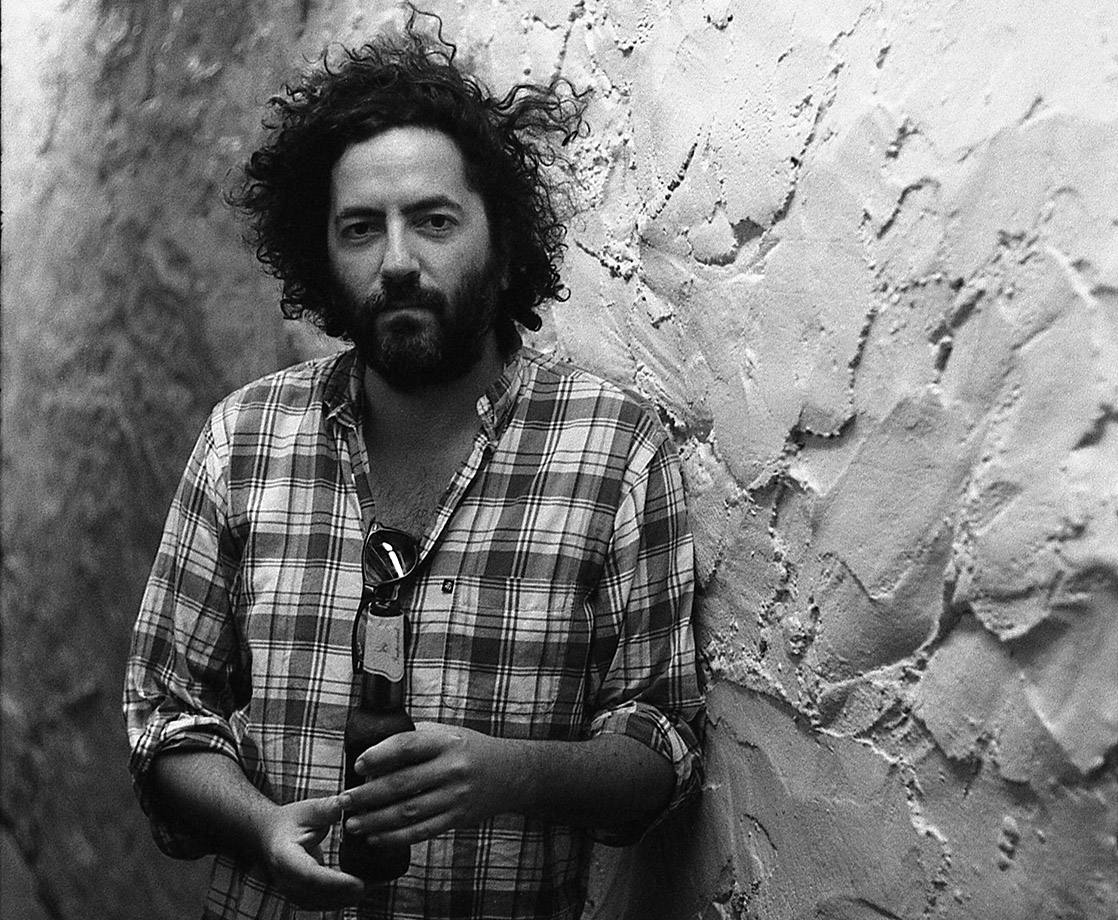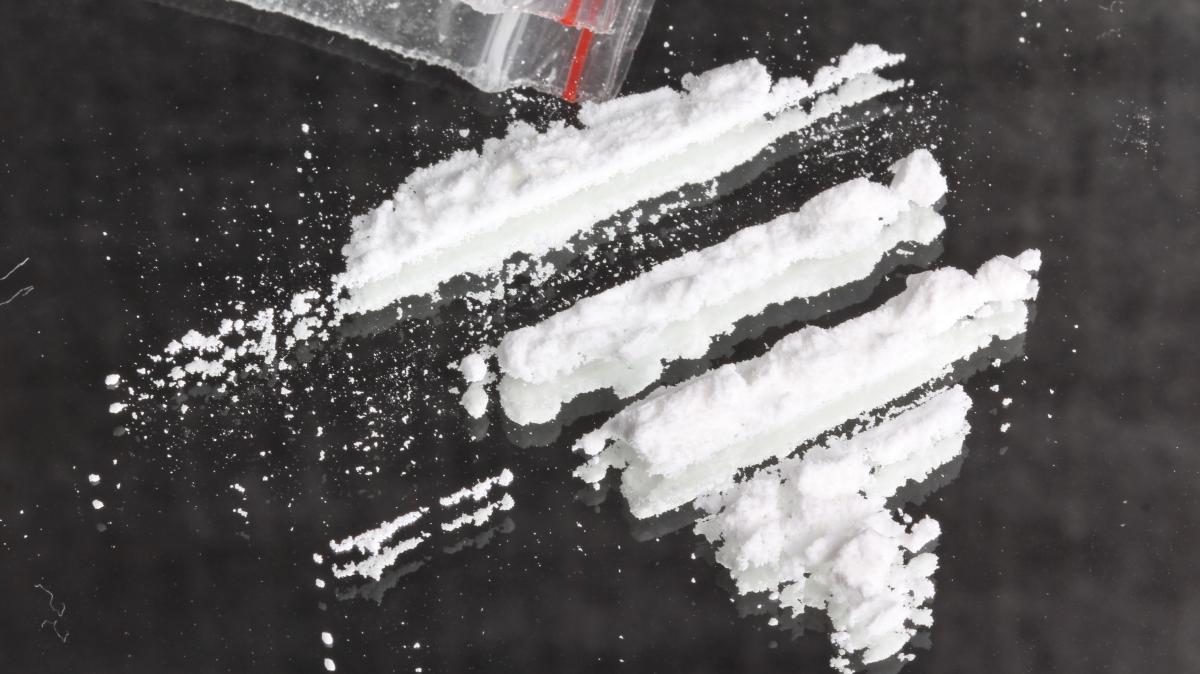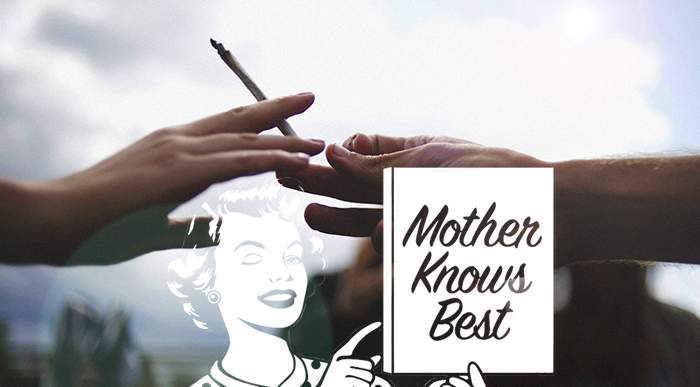Photos by Ted Bois, courtesy of Merge Records
"Stay lost… Stray!" sings Dan Bejar at a climactic moment on Ken, his band Destroyer's new album. His tone is uplifting, diametrically opposed to the grouchy "Get lost!" sentiment you could construe from that line on paper. He seems to urge us away from ruts, from comfortability, and into the unknown.
That's basically been the operating principle of Bejar's Destroyer project since it began over 20 years ago. No two of their twelve albums sound alike, some expansive full-band workouts like 2015's Poison Season, some pitch-perfect genre exercises like 2011's Kaputt, and some brilliant feats of one-hand-tied-behind-my-back experimentation, like 2004's Your Blues, which was almost entirely composed using flimsy MIDI orchestration. Bejar's the one constant in the band's lineup, which used to drastically change between albums, but has retained core members since 2006's Rubies.
After finally achieving a well-oiled, full band sound on Poison Season after years of fluidity, Bejar (almost predictably) flipped the script for Ken. He and Josh Wells, a member of Black Mountain and Destroyer's longtime drummer, hit the studio together, writing primarily on guitar, drum machines, and synths, and called upon other members of the band to merely flesh out specific parts. The result is very '80s, but in a very different sense than Kaputt, which was reverent of the gauzy side of that decade epitomized by Roxy Music's Avalon. This time, it's sequencer-heavy, latter-day new wave, and even some of the earliest strains of Britpop, that act as inspirations.
On Ken, Bejar's lyrics are as impenetrable as ever, which would be the band's biggest constant were they not a knotty hedge maze of their own. On this album, he indulges his darkest, most blasé impulses, at times sounding like a derelict observing but not caring about the urban decay around him. Bejar's gained a similarly brusque reputation in conversation, but while his phone demeanor may be a little prickly at moments, he's as open and engaging an interview subject as you'll ever have.
I caught up with him a few weeks before Ken's release to discuss the restless musical progression that he doesn't find very restless, the cynical lyrics that he doesn't find very cynical, and the detrimental transformation of his hometown, which he surprisingly also finds very detrimental.
MERRY JANE: With your last two albums, Kaputt and Poison Season, you mentioned very specific eras of music as reference points. Was Ken similarly influenced by a very specific era of recordings?
Dan Bejar: I think so. At least more so than Poison Season, which was more influenced by a fictional space in my head. Maybe I'd been listening to early '70s soul music, or '50s Billie Holiday records. So, I guess that that's kind of specific. I think Ken goes back to an era of music that I had a lot of experience with when I was younger, the UK indie bands from the mid '80s, late '80s, the stuff that first got me hooked on music in the first place. I went back and listened to that. I've taken 25 years off from listening to a lot of music that I was nuts about when I was a teenager, but in some ways those passions never really go away. In fact, it's kind of like the music of that era always seems to be a formative part of me.
Was there anything specific that made you want to revisit that, or was it just that so much time had passed?
I think I was interested in music with simple guitar parts because I started playing guitar again for the first time in 10 years, and writing on the guitar. Part of the idea of the album was I wanted to play as much as I could on it. My role in Poison Season and Kaputt had been more of a ringmaster, not really getting my hands dirty. When I do play electric guitar, I seem to always fall back to a certain style of progressions, or certain melodies, definitely certain sounds with the pedals that do point back to the kind of like classic new wave, or post-new wave era.
I got really into The Church again, which by no means is considered a cool band now, or in the '80s, when I first heard them. But, I liked their druggy new wave mysticism, and the utopian everything-goes [mentality]. I found that kind of attractive, in the same way that I was into a band called The House of Love, a creation rock band, back in the late '80s. They're not really a shoegaze band, but they kind of have some trippy rock guitar, and this cool poet rocker vibe.
Were those some of the first bands or albums that inspired you to play music, or did you learn how to play along to some of those songs when you were a kid?
I never really did much playing along, maybe because of the music I was into wasn't West Coast hardcore, or something like that. Maybe because I was into these gray, misery-loving UK groups wearing scarves and stuff, it didn't seem accessible. It didn't seem like part of my world, especially in the way I romanticized it, or had a very idealized version of it, which couldn't involve me being a part of it in any way.
In some ways, I'm really just talking about the kind of English bands that were on the college rock radar back in the mid, late '80s. A lot of it is basic stuff, like Smiths and New Order. I have a fairly steep history at all times with those two groups. I feel their spectre on many Destroyer records, whether people hear that or not. A record I got really into was one I remember having on tape as a teenager. It was the first solo record by the singer from Echo and the Bunnymen. He decided to cut loose and make this kind of mature Leonard Cohen record. But it's a Leonard Cohen record that's covered in tinny drum machines and sell-out [synth] sequencers.
Because you went back to playing guitar when writing these songs, are you going to play on tour again? You haven't in a while.
No way. Not at all.
You prefer the vocals-only approach?
Just me and my trusty tambourine.
What do you like about not playing an instrument when you're performing?
What I like about it is that I sing way better. For me, that's quite a big deal. All I have to do, the main thing I have to do, is sing. If I botch that because I'm trying to stomp on a pedal or trying to be an adequate rhythm guitar player, it hardly seems worth it. I'm not really a fan of my guitar playing. I like it in a solo setting, where I simply strum with my thumb as quietly as possible, and just kind of chill into an acoustic drone to sing over, you know? As far as in a rock band setting, it's no good, and I want things to be good.

You described your role on Poison Season as the ringleader, and there were all the string arrangements, and kind of that more expansive sound. You've said that the unexpected success of Kaputt allowed you to afford a record that sounded like that. Did the reception or the way that you felt about Poison Season similarly impact Ken?
When I said that, I was speaking in incredibly concrete terms and just referring to the fact that I got the largest advance that I had probably ever seen in my life. I decided to blow all of it and end up with my version of an incredibly lush world. With the brevity of the songs on Ken, the way they're all two or three minutes, I can't remember the last time that was the case on a Destroyer record. Maybe you'd have to go back to the '90s. There's a directness and a brevity, and at least as far as Destroyer albums go, a conscious attempt at minimalism. That's maybe reacting against the kind of constant filmic quality that Poison Season was aspiring to.
Do you think you have a natural tendency to react against what you've done most recently before starting something new?
I don't know, because a lot of these questions are about sonic approaches, or production approaches, production values, and a lot of what I do just happens simply at the writing level. Not that I'm not involved with that other stuff, but I can't really speak to writing a set of songs that is reacting against a set of songs that I wrote three years ago.
In fact, I think for all the talk of Destroyer records jumping around and being so different, I think you'd be hard pressed to find a songwriter or a singer whose songs are so set in stone. I think for better or for worse — maybe often for worse — it's out of my hands. I'll hear a song or I'll write a song, and it really just sounds like a Destroyer song, and the band will say the same thing. If anything, I'm shocked by how generic and impersonal most songs sound in comparison. I don't know if that sounds like I'm saying I'm really cool. Maybe I am. But you know, for all the jumping around of the Destroyer albums, I think there's a real static quality to the vision of the songs, a terrible consistency to it.
That's a funny way of putting it. So, is it mostly the band who then steer the sound in the direction that ends up on the album?
I usually find these things written into the songs. I'm kind of a bloodhound to that stuff. Maybe I hear it more than other people. I don't find production or arrangements as musically defining as other people maybe do, because I'm so hellbent on lyrics and melody, and shit like that. Definitely the band plays a huge part in it. When you actually look at the names involved with each record, it's been really, really consistent for the last few years. It's just coming in with an idea, and usually throwing out that idea halfway through, but the album's still kind of born of it.
That's a big change from early Destroyer days, when you changed the lineup pretty frequently.
Yeah, there's kind of like a big shift that happened in like 2001. I think if you listen to Thief and Streethawk, Destroyer sounds like a set band. After that, things kind of got blown apart, and there'd be like people I collaborated with on a regular basis, but the idea of capturing a band in action didn't come back for a while.
I just fell in love with the sound of the Poison Season band when we were touring before we made that record. The idea of Poison Season was to capture that sound. They were just a really laid-back band. They were easy to sing to, and I just wanted to get the sound of us in a room. Then sometimes you come in with like a very strict conceptual idea. Those would be records more like Your Blues, and maybe Ken would fall into that category.
How did the recording process differ this time around? I know some of the personnel is the same, but I also read that this wasn't recorded as a quote, unquote "band" record.
When I started off with this idea, I was foolish enough to think that I was going to make a solo record, and I just chickened out. So I started off with Josh Wells, the idea of him just kind of helping me flesh out the demos and record them. He had such strong ideas, such drastic ones, and right away I got swept away with that. Things that I demoed became more than half of the record, and it bears his stamp as a producer, to the point that they're unrecognizable from the demo versions that I came up with.
It was just him taking over, and us starting to build the record in a very methodical way. We're usually starting with a drum machine pattern and a very basic synth sequence, and then building on that. Once the songs are pretty fully formed, that's when we started bringing in people from the band to play in spots. It was all quite conscious and meticulous. It wasn't the norm for Destroyer, which is just having them all come in, and blazing through the songs, and then just seeing what you got.
In that sense, I kind of saw a producer's approach for maybe first time ever. The synth-heaviness of the record is what Josh brought to the table, and I wanted that to be a part of it, but I think Destroyer's natural inclination with synths was starting to become like halo-y and ambient, or a vaguely orchestral, or string-like. This was very hard-edged, and percussive, and in your face, and kind of goth. All these synths are really new to me and that's definitely the Josh Wells stamp.
Moving onto the lyrics, that gothy sound kind of fits because there's some pretty cynical sentiments on here. I know there's always been some cynical Destroyer songs out there, but it's like, "Strike a pose, the pose is always empty." "Come one, come all, dear young revolutionary capitalists." "I was a dreamer, watch me leave." Were you feeling more cynical than usual when writing this one?
I don't think I'm feeling cynical. I don't know if that was the word, you know? I feel like they're more, like, blatantly dark. In Destroyer songs, there's always maybe something menacing in the background, or maybe there's a city in flames in the background, but it's not usually as direct or constant as it is in Ken. I don't know why that is.
Maybe it's because, musically, I felt I'd written just a handful of ditties — simple, direct songs. I felt like the lyrics could be quite dark, but not in a personal way. It's in contrast to Poison Season, which I felt in hindsight, was an intimate record. On this one, I'd say there's a constant allusion to idle depravity. Like people soiling themselves, or decadence, or madness, or violence and death, and the way that those things overlap. Always in contrast to that, there's someone who's either living in extreme isolation or craves distance or some kind of horizon to wander off into that has nothing to do with this throng, a throng that is generally seen as overcome by madness or some kind of rabies or something.
Yeah, in one song you say, "Vancouver's got a new Caligula," and then just kind of brush it off like it's inconsequential to you.
Yeah, I say something like, Hey, that's cool. Even though dark forces pop up a lot, it's not really a political record. There's not really a desire to engage with a world which is a lost cause and broken beyond repair.
Yeah, the only song I can think of off the top of my head that doesn't directly allude to darkness is "Stay Lost," which sounds kind of uplifting, but I guess that's in reaction to what you're just describing.
I wanted that to be very casually anthemic. But in the end, the mantra is like, "Stay lost, out on the street, in the book of the dead," over and over. It's not life coaching. The stadium that sings along with that song is probably some kind of stadium of the damned.
I like that image. There's little parts in the last a couple of albums where the pop culture references took me aback. On this album, you sing, "I know what you did last summer," and then there's the "Escape from New York, Escape from LA" part on Poison Season.
Well that Poison Season song, "The River," is meant to be quite literal. I'm telling people to get the hell out of these hubs of capitalist culture. The fact that I could do that and also quote a couple of John Carpenter movies is all the better as far as I'm concerned. If can quote titles of John Carpenter movies and address a specific, wholly different concern as well, then that's just icing on the cake.
With idea of avoiding those hubs, and then also, that aforementioned "Vancouver's got a new Caligula" line, do you feel like the Pacific Northwest is, as a whole, becoming more similar to those hubs, and it's harder to escape from that up here?Definitely. Vancouver is a mess, but I don't really want to get into it. It suffers from a lot of problems that I'm sure larger cities around the world with a shit ton of money also suffer from. It's not that big, so it just seems more focused and in-your-face. Yeah, where does one retreat to? It's a good question. It's one that comes up often. I don't really feel like moving to Hudson is the answer.
This is something that's changed a lot of since you first started making music, right? I'm too young to remember how it was back then.
With Vancouver, a lot of it feels very basic, especially being an older person. I'm 45-years-old, and the city that I used to gallivant in 20 or 25 years ago, all those places are gone. They're all erased. Sometimes I don't know where I am in the city, and I was born here. So that to me is more interesting to me than some big economic critique. The fact that the world erases itself, and the fact that you can find yourself completely lost on a street that you've been on a million times over the course of your entire life. To me, when it comes to writing from that place, I find that interesting, or moving. I find that images can be both tragic and scary and also really cool.
Is it interesting enough that you foresee yourself never leaving, even if it becomes even more unrecognizable?
I don't know. I don't know what I'll do. It's not like I've stayed here because I love it so much. I just kind of have. I've ended up here and I've made a life for myself here. There's probably really concrete things that would drive me away, like being priced out of here, but when that will happen, or when I will fail to endure, it's hard to say when the hammer will come down.
Destroyer's "Ken" is out this Friday, October 20th, on Merge Records. Preorder it here.
Follow Patrick Lyons on Twitter.











